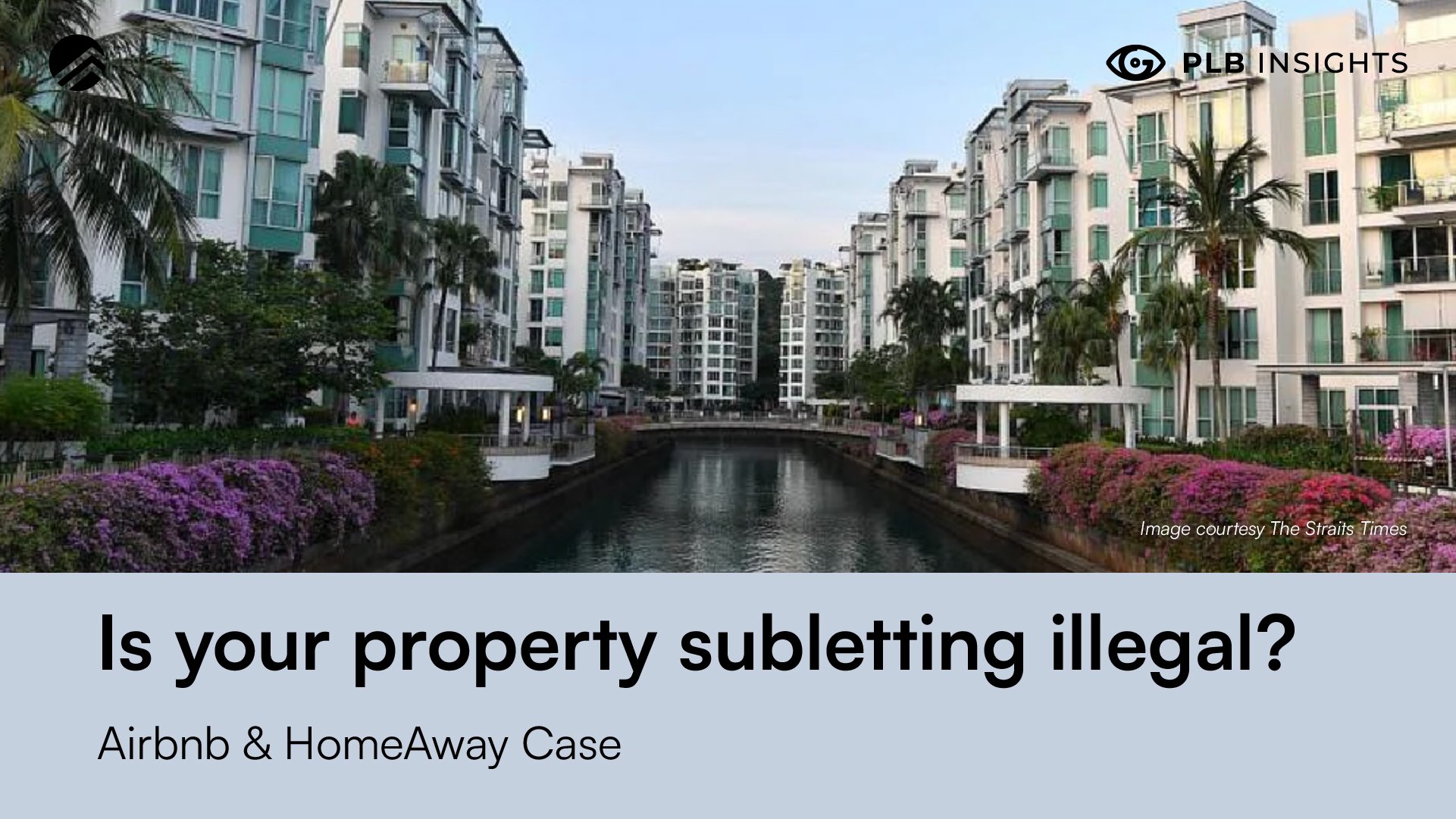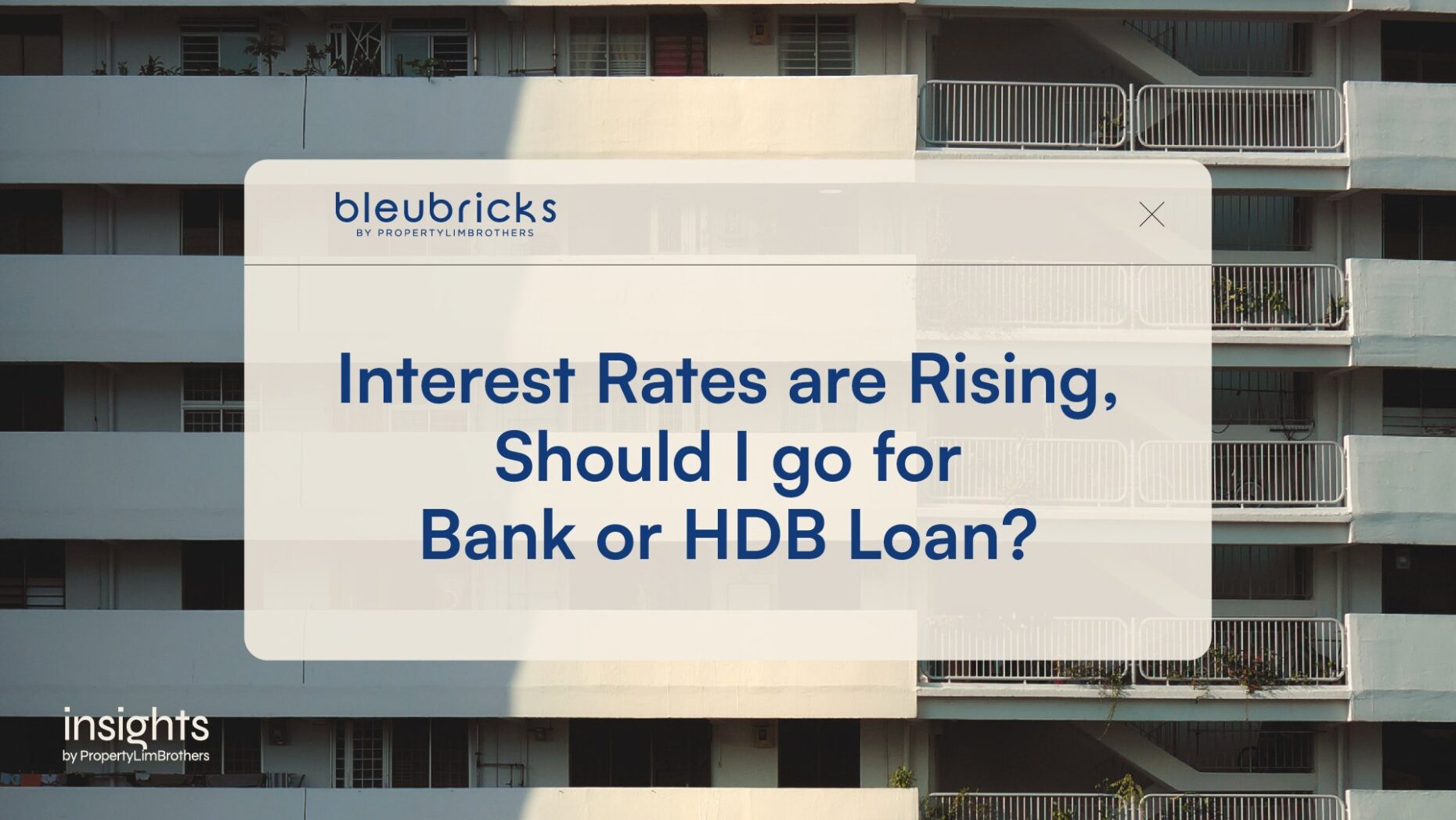
The recent news on Channel News Asia have highlighted a high-profile case of illegal subletting on online platforms in Singapore. In a very elaborate case of renting and subletting the units in disguise, the subletting scheme managed to rack in a revenue of approximately S$1.25 million.
Subletting is the act of re-renting out the property you have rented to another set of tenants. It basically creates another layer of tenants. The hot rental market might have tempted many to illegally sublet their apartments for short-term gains. At the end of the day, it is a case of greed. People trying to exploit non-existent “loopholes” in the system to make a quick buck. It is not a matter of if they will be caught but when they will be caught.
In this article, we cover how different stakeholders share responsibilities in preventing illegal subletting, and why people seek to illegally sublet in the first place.
Stakeholders & Shared Responsibility
Everyone plays a role in preventing illegal subletting. Regulators actively enforce, communicate and educate the relevant parties. Landlords actively observe whether their property is being used unlawfully and take the necessary steps to safeguard their interests. Tenants need to be responsible in their usage of the property and know what is considered lawful or unlawful use.
Real estate agents play a crucial role in tying this all together. They disseminate the appropriate information to both Landlords and Tenants, educating and advising them whenever applicable, and take actions to prevent and remedy unlawful transactions and use of property.
Regulators are moving at a laser fast pace now. With MAS and CEA committed to enforcing rules on violations, real estate agents should keep in line and educate themselves to be compliant with the latest best practices. Even service providers such as Airbnb are working closely with regulators to make sure that their services and listings are compliant with what has been set out.
Landlords should also do their own due diligence, and not put their blind faith into their real estate agents. As much as the administration of setting up a rental contract may seem tedious, landlords can still be penalised for the misdeeds of their tenants. Thus, there is a real need even for landlords to know what they are responsible for, and how to keep their tenants in check.
For tenants in Singapore, rental might be getting more expensive, but the price of violating the law by subletting illegally will be even higher. Getting evicted and fined for unlawful gains would leave you worse off than if you had abided by the rules.
Subletting is illegal for HDBs and the government takes a very strong stance in enforcing this. Whereas for private property, landlords need to be more vigilant about their tenants’ activity. The government ultimately looks to landlords to be the one responsible for the lawful use of the property. Even though both landlords and tenants would be penalised for illegal subletting, the property owner is technically held to be the one who is more responsible to keep things in order.
That being said, most owners are not experts in regulations and legal issues regarding property. This is where real estate agents come into the picture. A competent real estate agent should know these regulations at the back of their palm. Being experienced might help with being familiar with such knowledge. But so often, even agents fail to keep themselves educated on such matters.
The bar needs to be raised. For real estate agents to reach their highest potential, they need to gain mastery over the subject matter. Not just focusing on the sales aspect alone, but on governance, compliance, and regulatory issues. This is underrated but will very soon be the baseline expectation from the public. To be considered as real estate advisors and experts, this should be considered elementary.
Why Sublet in the First Place?
People sublet properties to book a profit or subsidise the existing rental expense. The act of subletting itself already presumes you are re-renting out a property you have rented from a landlord. In some sense, a subletter is a “middle-man” between the landlord and another set of tenants.
In the case of HDBs, this is completely illegal whether or not the landlord consents. For private properties, the landlord must consent and the subletting must be done within legal boundaries. An example would be minimum tenancy periods and maximum number of occupants for the property.
When done legally and appropriately, subletting can be a beneficial activity for all parties involved. The landlord might be most interested in getting a tenant for a longer period of time to ensure consistency in rental income. Typically, this will lock in a main tenant to secure the landlord’s rental yield for a few years (if nothing goes wrong).
If the main tenant has spare unused space (spare bedrooms), and the landlord consents to subletting, the tenant may re-rent out parts of the property to a new set of tenants. The second layer of rental income here belongs to the main tenant and can help to subsidise the rental expense for the whole apartment.
In some rare cases, it might be possible to book a profit. One possibility is that the main tenant has a long term rental contract with the landlord. If the prices are locked in at the market rate then, and subsequently the market rate rises, the main tenant could sublet out short term contracts at a higher price. Over time, it might be possible to book a profit if the market rate rises a substantial amount.
With how the rental market has performed over the past two years, this might not be so hard to imagine. The rental market is incredibly hot. Some landlords might facepalm having signed an agreement to a lower rental rate before the pandemic. But these market movements are often out of sight for landlords (especially those who seek stable returns).
At the end of the day, it is possible for a win-win deal. The landlord gets stability and less fuss over negotiating multiple rental contracts. The main tenant can get subsidised rent or book a small profit for subletting in exchange for managing subletting agreements. The second-level tenants might be able to find a place that accepts short term rentals or rentals for just a small space and not the whole apartment.
Greed is not Good
Contrary to a famous quote, greed is not good. Quite often, what could be a win-win situation is quickly thrown into a moral dilemma or legal battle because of greed getting the better of a person. In the case of illegal subletting, the main tenant is usually the perpetrator. Landlords often have a tough time catching illegal subletting before it’s too late (and regulators take action). Having landlords consent to subletting itself is already not a common occurrence.
The main tenant might have friends or people that they know seeking to rent out only a small space and/or for a short period of time. In a bid for an illegal deal here, the main tenant might be tempted to sublet the apartment without the landlord’s permission and knowledge.
Do note that while the topic is on subletting, landlords themselves are not allowed to rent out their properties beyond the legal number of occupants and under the minimum rental period (3 months for private properties). The HDB regulations are more complex. The minimum period is 6 months in addition to other regulations.
Whether you are the tenant or the landlord, greed isn’t good for you. It will eventually bite you back later on in the future.
A Tip for Landlords
There is something Singaporean landlords can learn from the rental markets in other developed countries. In order to lower the likelihood of their properties being used to conduct illegal activities, landlords invest a lot more time into the selection process for tenants. To make sure that the tenants they get can comfortably afford the place, and are decent people by any standard.
In the United States, United Kingdom, and Australia tenancy interviews are commonplace. But not so much in Singapore. Much of it might be left in the hands of real estate agents on a trust basis. Landlords need to take more responsibility moving forward.
In a tenancy interview, people typically do a more in-depth qualitative background check on their tenants. Precisely what they are doing, what their plans are for residency, etc. The bottom line is to get to know them better and identify any red flags that could hint to future misconduct.
Apart from playing a little bit of minority report here, landlords really need to be less of a yes-man and be more selective than they currently are with tenants. Though rental income and yields are important, so is having a responsible and good tenant.
Closing Thoughts
The news is often littered with events such as the one featured on CNA. This is definitely more of an anomaly than a norm. Most tenants and landlords in Singapore are responsible and take the right steps.
Nonetheless, we need to make sure that moving forward, Singapore improves its practices in the rental market. There are still a lot more processes that can be improved in our market. It is definitely far from ideal.
If you are still unsure about the legalities of Singapore’s rental market and wish to find out more, contact our experts here. They would be happy to help you on your rental journey whether you’re a landlord or tenant.




